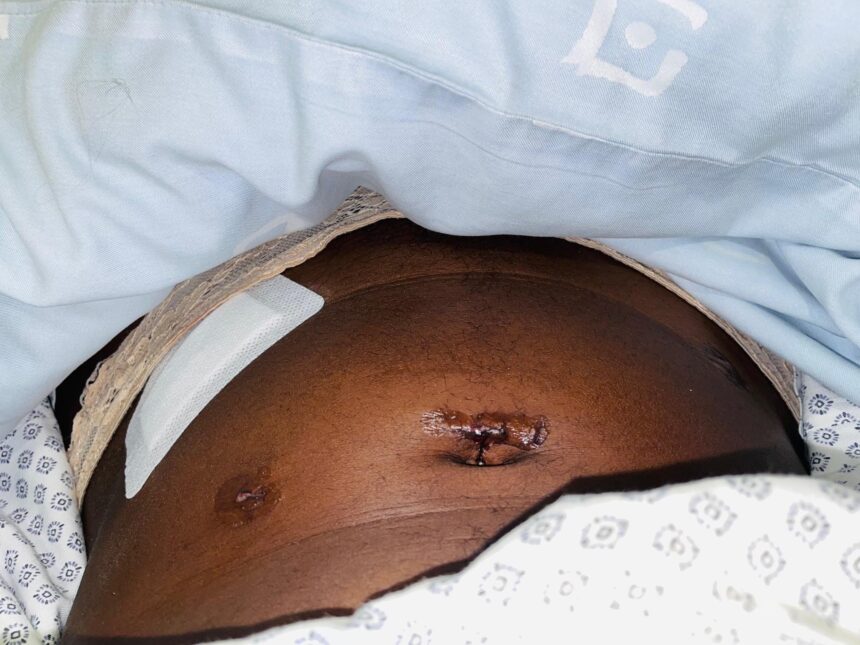In July 2023, 34-year-old Ngerikomukuenu Tjihukununa was diagnosed with stage four endometriosis.
This was a shocking recount, as she had never heard of the condition before.
The World Health Organisation states that endometriosis affects approximately 190 million women and people assigned female at birth worldwide.
Endometriosis is a chronic, inflammatory, gynaecologic disease, marked by the presence of endometrial-like tissue outside the uterus.
In many patients, it is associated with debilitating painful symptoms.
“I was diagnosed with stage four endometriosis – and believe me, I was sad when the doctor told me because I was like, ‘why can’t it be stage one or two? Why should I run to the most severe stage?” narrated Tjihukununa.
Also known as Dolly among her close friends and relatives, she shared that she was in constant pain daily.
“It is your inner body that hurts. Only someone who knows you well will see that you are really hurting,” she said.
The marketing officer has so far had three surgeries.
After each surgery, the pain returns, becoming severe.
“I take very strong medication, which makes me a zombie after two hours or so. A heated water bottle helps. I love winter, but it is not the best season if you have endometriosis. Emergency rooms are my besties when I can’t wake up due to the flare, which is very unpredictable,” she said.
Tjihukununa is part of a group of many women who have established a WhatsApp group and an Instagram account to help one another navigate the condition.
“We talk to one another about our pain, and how to manage it. One can post their issues, and we talk about it. If there is someone who has experienced the same issue, they explain how they dealt with it,” she stated.
Magreth Vries (32), who has the same condition, shared that her biggest issue is struggling with leave days, as she is constantly in and out of the hospital.
“I have been taking unpaid leave since last year, as my 30 days of leave for a three-year cycle finished in one year because I was hospitalised twice. I had constant flare-ups afterwards. It’s financially draining,” said the client service advisor.
Vries was diagnosed in 2013.
“But it was also a sort of relief that it finally had a name after so many years of wondering why I was in so much pain. I hope one day, endo can be taken up as seriously as it is. It needs to be listed as a chronic disease,” she told Vital Signs.
Specialist obstetrician-gynaecologist Dr David Emvula has consistently been creating awareness around the condition.
He stated that endometriosis is one of the causes of infertility among Namibian women.
“One out of six couples is affected by infertility. That is quite a significant number, if you look at it. Although we don’t have true data in Namibia, we believe that we are up right there with the global data,” said Emvula in an interview recently.
The obstetrician said the experts do not have answers as to why specific women have that condition.
It is a catastrophe, as there is quite a lot of damage done to the Fallopian tubes.
“With the damaging of the tubes, there are no places for the eggs and the sperm to meet for the fertilisation to happen,” Emvula noted on one of the three aspects that contribute to infertility.
He acknowledged the cost implications of treating the condition.
There are drugs that are good at alleviating the pain, such as gonadotropin.
Emvula said the medication is not good after six months because it starts causing menopause symptoms.
“There are newer developments of drugs that might show indications of giving them in the long run. They may not help with curing, but they are effective when it comes to limiting the pain,” he said.



